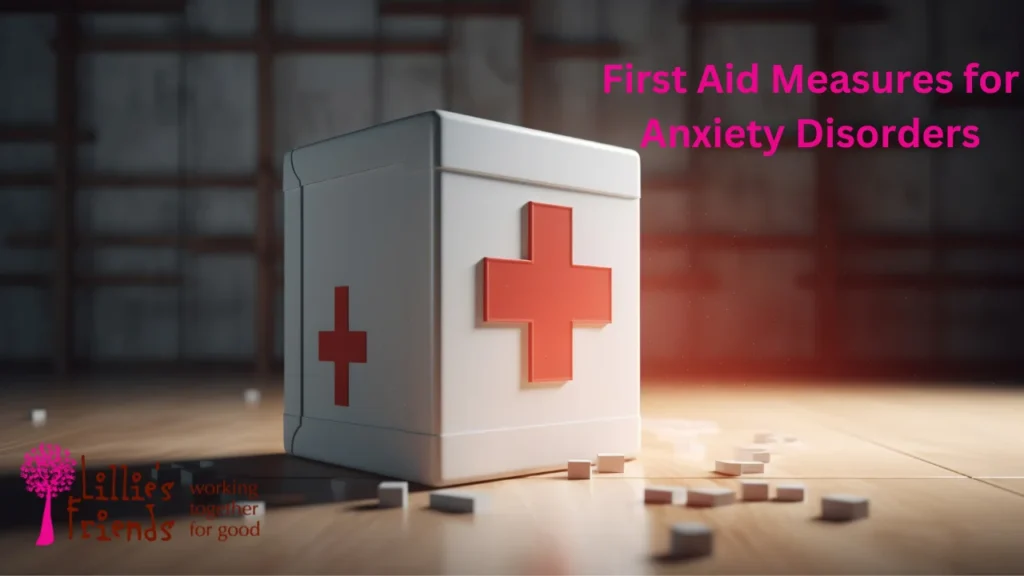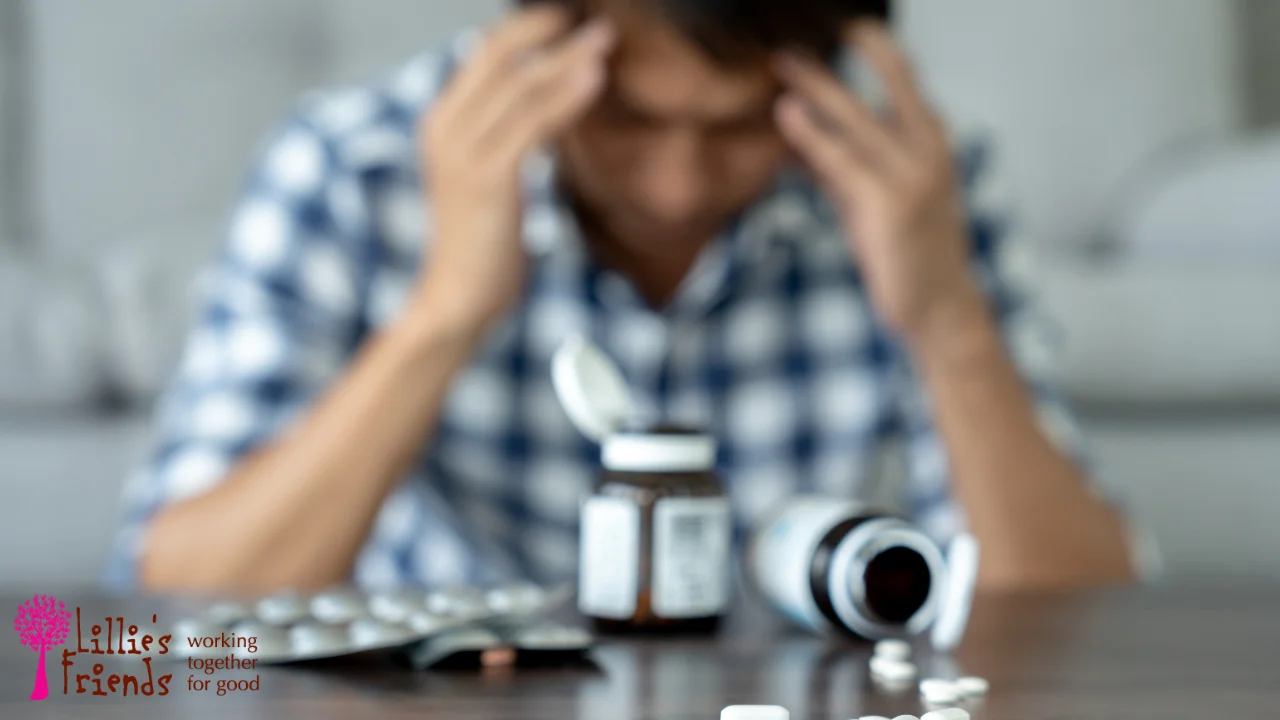Anxiety is frequently a common response to stress. Yet, it may develop into an anxiety disorder if it develops out of proportion to the circumstances or persists long after the stressor has subsided. Anxiety disorders impact 19.1% of adults annually, making them the most prevalent mental illnesses in the United States, according to the Anxiety and Depression Association of America. The symptoms might be minor or severe and include anxiety, trouble focusing, and physical symptoms like heart palpitations or stomach problems.
This post will discuss several facets of treating anxiety, ranging from non-pharmacological approaches to prescription drugs that might be necessary in cases when specific anxiety disorders are present. We’ll outline the telltale symptoms so you can decide when to ask your doctor if anxiety medication is appropriate.
Is Medication the Perfect Solution for Anxiety?
In essence, anxiety is a survival mechanism that gets us ready to face danger. Furthermore, medication isn’t always required, even if this beneficial mood develops into an anxiety problem. The degree of symptom severity determines this. Some people find that lifestyle modifications, mindfulness practices, or psychotherapy can help manage the psychological and physical symptoms of these illnesses. But occasionally, if an anxiety illness has a substantial impact on day-to-day functioning, medication might be a viable alternative. We’ll go over each of these instances in greater detail below.
First Aid Measures for Anxiety Disorders

Healthcare professionals usually suggest a range of non-pharmacological therapies to address anxiety symptoms prior to writing a prescription. These could consist of:
Anxiety can frequently be well managed with a mix of these techniques, but medication may be suggested if symptoms worsen.
When to Think About Taking Anti-Anxiety Drugs
While occasional worry is a normal part of life, for some people anxiety develops into a chronic problem that affects relationships, everyday activities, and general well-being. The following indicate that you require medicine for anxiety:
Which Medicine Is Best for You if You Have Anxiety?
Depending on the unique symptoms and requirements of the patient, a healthcare provider may recommend one of the many drug options for treating anxiety. Each medication option has advantages and disadvantages.
Off-label prescribing of other drugs is another option for treating anxiety. One example is pregabalin, which is marketed under the brand name Lyrica and is primarily used to treat neuropathic pain and seizures. However, it has also been successfully used off-label to treat generalized anxiety disorder. Because of their adverse impact profile, tricyclic antidepressants such as Elavil (amitriptyline) are another less popular treatment choice, while they may be appropriate in some anxiety situations.
Before recommending an anti-anxiety drug, your healthcare practitioner will take into account your medical history, symptoms, and any potential interactions with any medications you are taking.
Which Questions Are Appropriate to Ask a Doctor?
When debating whether to start taking anxiety medication, don’t forget to consult your physician:
Medication for Anxiety Is Not Your Only Choice
When it comes to managing anxiety, medication is just one component of the jigsaw. It often works best when paired with other therapies like counseling and way of life adjustments. For a diagnosis and a personalized treatment plan, always see a healthcare practitioner.
Whether or not to take anxiety medication is a personal choice that you should discuss with your doctor. It is ultimately up to you to decide whether or not to take medicine, but it is important to consider the advantages above the hazards.
In summary
After all other options have been exhausted, anxiety medication is often seen as a last resort. It may, however, be a helpful and efficient part of an all-encompassing anxiety treatment strategy, particularly for those who are coping with severe or persistent anxiety symptoms. In addition to providing continuous therapy for generalized anxiety disorder, social anxiety disorder, panic disorder, and other types of anxiety, medication may provide relief from acute stress disorder.
In any event, getting an appropriate diagnosis and a customized treatment plan requires speaking with a mental health expert.
FAQ
Is it preferable to manage anxiety naturally?
The medical problem, its severity, and the reaction to previous therapies all influence the choice of treatment alternatives. See a medical professional for tailored guidance.
How can I begin the process of obtaining medication for anxiety?
Seek an assessment from a healthcare professional before using anxiety medication. For a precise diagnosis of your problem, they could suggest a number of examinations and evaluations. The results suggest that in addition to other therapies like therapy, medication may be used for the treatment of anxiety.
Does taking medicine have to be done?
The method used to manage anxiety relies on the requirements of the person and the intensity of the symptoms, and may include coping mechanisms, cognitive-behavioral therapy, or medication. While some individuals find relief without medicine, others need medical attention. A medical professional may assist in figuring out which strategy is ideal for each person.
How can I get medicine for anxiety without seeing a physician?
Because of the probable hazards and side effects of anxiety medicines, it is not feasible to purchase them without a prescription from a doctor. Before beginning any drug and receiving a prescription, always speak with a medical expert.
How does taking medication for anxiety feel?
While everyone’s experience with anxiety drugs is different, many individuals report feeling less anxious, more composed, and having better overall health. Certain people may have adverse reactions after using anxiety medicines. It’s critical to keep an eye on emotions and consult a medical professional.
Should anxiety go untreated, what may happen?
Untreated anxiety may worsen and result in long-term stress and physical health problems. In addition, there may be a decrease in life quality, issues in relationships, and a higher chance of developing depression or other mental health conditions.
Which anxiety medication works best when used as needed?
When used as required, benzodiazepines like Ativan (lorazepam) or Xanax (alprazolam) are often given to treat acute anxiety or panic episodes. However, because of the possibility of adverse effects and dependency, they should only be used under a doctor’s supervision.
What should you do if you believe you need medication for anxiety?
See a healthcare professional if you believe you need anxiety medication for an appropriate diagnosis and treatment plan. This plan may include therapy, medication, or both.

